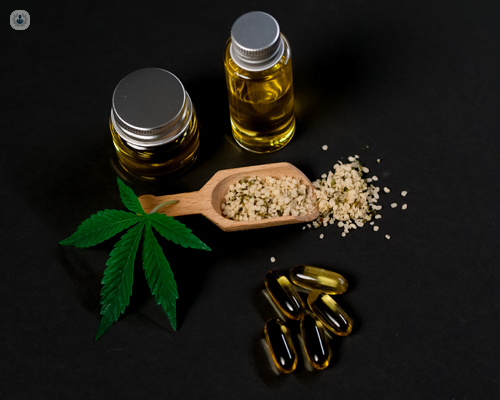Navigating the stigma of medical cannabis: Overcoming social barriers
Autore:Medical cannabis has gained significant attention in recent years as a treatment option for various health conditions, particularly in pain management and rehabilitation medicine. However, despite growing acceptance, many patients still encounter stigma and social barriers when considering or discussing its use.
This article provides an expert insight into the complexities surrounding medical cannabis, exploring its role in pain management and rehabilitation medicine, addressing common misconceptions, and providing strategies to overcome the social barriers associated with its use.

What is the role of medical cannabis in pain management and rehabilitation medicine?
Medical cannabis has become a valuable option, either as an alternative or an adjunct to traditional pain management approaches. Cannabinoids, the active compounds found in cannabis, interact with the body’s endocannabinoid system, which plays a crucial role in regulating pain, mood, and various bodily functions. Research has shown that medical cannabis can effectively alleviate chronic pain, particularly in conditions such as arthritis, fibromyalgia, and neuropathic pain.
Patients frequently turn to medical cannabis when conventional treatments fall short or result in unwanted side effects. For example, opioids, commonly prescribed for severe pain, carry a high risk of addiction and overdose. In contrast, medical cannabis has a lower risk profile and can provide relief without the same level of dependency.
In rehabilitation medicine, medical cannabis can aid in recovery by addressing pain, reducing inflammation, and enhancing overall wellbeing. It may help patients better engage in physical therapy and rehabilitation exercises, leading to improved outcomes. Additionally, the anxiolytic properties of cannabinoids can help alleviate anxiety related to pain or rehabilitation, promoting a more positive mindset during recovery.
What are the common misconceptions and stigmas associated with medical cannabis use?
Despite the potential benefits of medical cannabis, several misconceptions and stigmas persist, often hindering patients from exploring this treatment option. One common stigma is the association of cannabis with recreational drug use. Many still view cannabis as a substance used primarily for recreational purposes, which can lead to negative perceptions of those who use it for medical reasons.
Another misconception is that medical cannabis is not a legitimate form of treatment. Some may only view cannabis as a "last resort" option, failing to recognise its effectiveness as a primary treatment for various medical conditions.
Concerns about safety also contribute to the stigma surrounding medical cannabis. Some fear potential side effects, while others worry about legal matters. These fears can discourage patients from considering medical cannabis as a viable treatment option.
Furthermore, misinformation about medical cannabis's efficacy can lead to scepticism among patients and healthcare professionals alike. The lack of research, particularly in comparison to pharmaceutical drugs, can foster doubts about the reliability and safety of medical cannabis. This scepticism can create barriers to open discussions between patients and healthcare professionals.
How can patients overcome the social barriers related to medical cannabis?
Education is key; patients should inform themselves about medical cannabis, its benefits, and its legal status. Following this, having open conversations with a healthcare professional is essential. A supportive healthcare professional can help address concerns, provide guidance, and offer alternative treatment strategies.
Connecting with support groups can also help reduce feelings of isolation. Many organisations focus on advocacy for medical cannabis patients, providing valuable resources and a community who share similar experiences. These connections can help patients feel more comfortable discussing their treatment options and navigating the associated stigma.
Additionally, patients should consider the context in which they discuss their medical cannabis use. Sharing personal experiences with trusted friends or family members can help foster understanding and support. When discussing medical cannabis, focusing on its therapeutic benefits and the positive impact it has had on their health can encourage more open-minded conversations.


